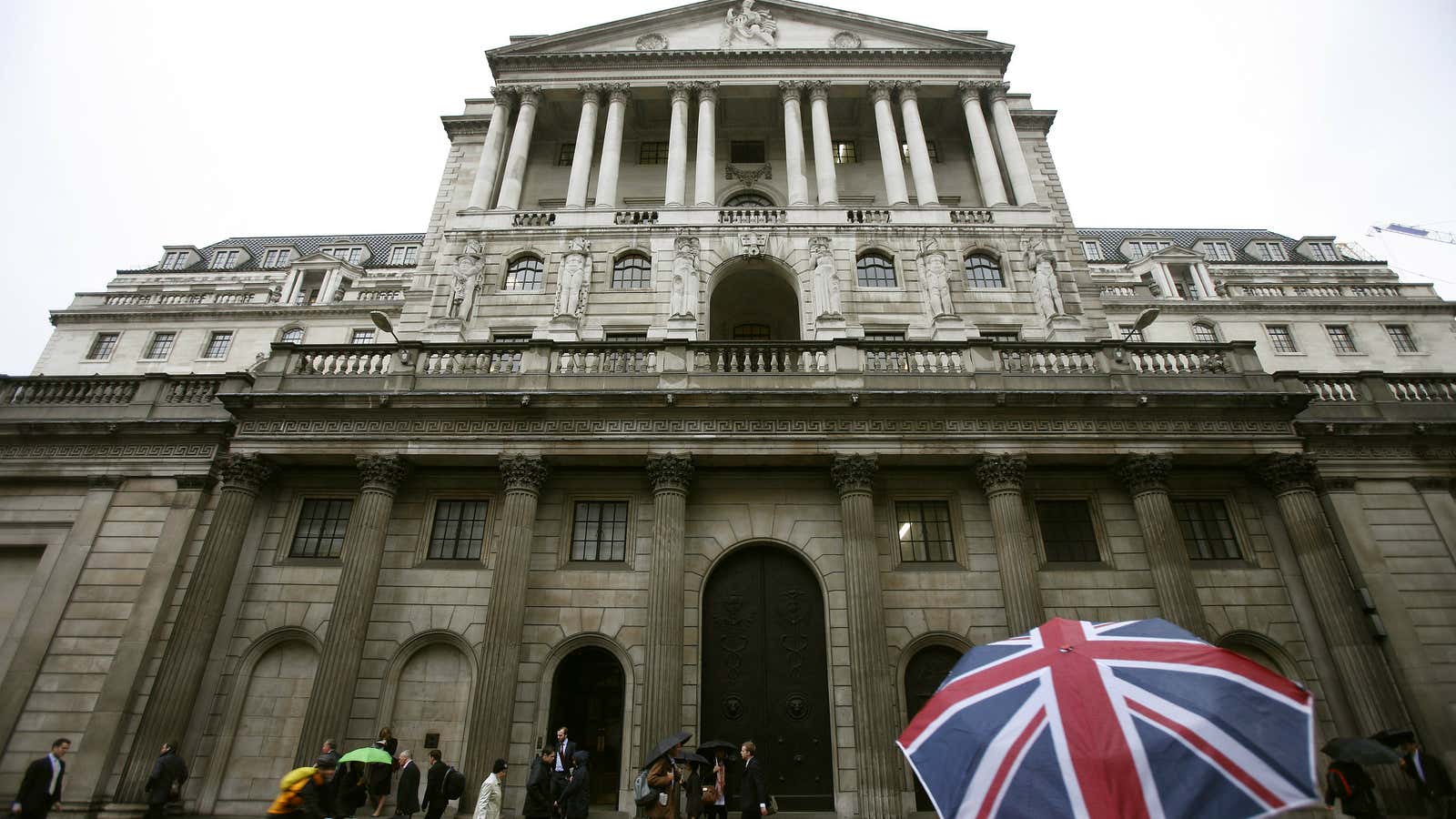Brexit has divided the UK politically—last week’s election and the resulting hung parliament are the latest example. Now, the issue has also divided the Bank of England.
In August 2016, policymakers at the UK central bank voted unanimously to bring interest rates to a record low of 0.25%, amid fears of a disruptive economic fallout from the Brexit referendum. Now, three of the eight policymakers voted to increase the rate by 0.25 percentage point, the biggest division in votes since May 2011, the central bank said today.
Since the UK voted to leave the European Union a year ago, the pound has fallen about 15% against the dollar. This has led to inflation rising quickly, and even faster than the central bank had predicted. This week, data showed the annual inflation rate was 2.9%. The central bank now believes the rate will stay above its 2% target for the next three years. The three officials pushing the bank to act—Kristin Forbes, Ian McCafferty and Michael Saunders—said this inflation overshoot, plus signs there is less slack in the labor market, warranted an immediate rate hike.
On the flipside, the UK economy is slowing down. Britain had the slowest economic growth in the G7 in the first three months of 2017. Higher inflation is making weak wage growth worse. Consumer spending, which was the bedrock of the economy, has taken a sharp downturn. House price growth is also slowing. And so, the other members of the BOE’s monetary policy committee voted to keep interest rates at a record low because they thought it was too early to tell if other areas of growth in the UK economy would be able to offset the slowdown in household consumption.
However, the policymakers all agreed on one thing: that “any increases in Bank Rate would be expected to be at a gradual pace and to a limited extent,” the minutes of this week’s meeting said (pdf).
Now, the Bank of England has divided traders and bank strategists. The three dissenting votes were a surprise (only Forbes voted for an increase as well last month) that sent the pound shooting higher. But then the rally petered out as it became unclear whether this was really a signal that another rate hike was coming soon.
The central bank hasn’t raised rates since July 2007. Analysts at Berenberg said today’s minutes from the BOE means the central bank could “surprise” the markets with a rate hike this year.
However, this is Forbes’ last month on the policy committee, and the committee is already one member short—so there will soon be two new people that can sway the vote. And the UK’s economic and political uncertainty on the eve of Brexit negotiations means “a compelling case can still be made for the Bank of England to hold off from any interest rate hikes—not just now but for some time to come,” according to Howard Archer, chief economic advisor at EY’s economic research unit, the EY ITEM Club.
Policy uncertainty certainly seems to be spreading around the UK.
